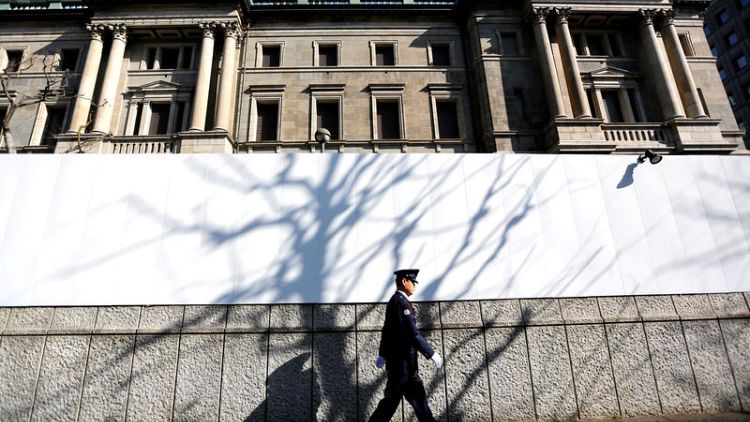By Leika Kihara
TOKYO (Reuters) - The Bank of Japan may seek to prevent unwelcome yen rises by tolerating temporary, market-driven falls in long-term interest rates, former BOJ board member Sayuri Shirai said on Friday.
Japanese government bond (JGB) yields hit three-year lows on Friday on concerns about the U.S.-China trade war, even as the BOJ cut its purchase of long-dated bonds to prevent 10-year yields from deviating too much from its 0% target.
Cutting the BOJ's rate targets or widening the band in which 10-year yields are allowed to move would be too controversial, as doing so could push yields deeper into negative territory and strain financial institutions' profits, Shirai said.
Instead, the BOJ may tolerate temporary, market-driven declines in 10-year bond yields, to prevent narrowing U.S.-Japan interest rate differentials from pushing up the yen, she said.
"The BOJ will probably maintain its current framework and the target range, but tolerate market-driven falls in yields," Shirai said.
"That way, it can head off excessive rises in the yen, without hurting financial institutions," she told Reuters.
Under a policy dubbed yield curve control (YCC), the BOJ guides short-term rates at -0.1% and 10-year yields around 0% via aggressive bond purchases.
To breath some life into the market, Governor Haruhiko Kuroda has said the BOJ would allow 10-year yields <JP10YTN=JBTC> to move in a range of 40 basis points around the 0% target.
If yen rises become too sharp, the BOJ may be forced to widen the range at which it allows yields to move, said Shirai, who retains close contact with central bank policymakers.
"The BOJ probably wants to avoid expanding stimulus for as long as possible," Shirai said. "It has already done so much and there's few policy tools left at its disposal."
Global bond yields have fallen on concern over the escalating U.S.-China trade war and expectations of further monetary easing steps by the U.S. Federal Reserve and European Central Bank.
The 10-year Japanese government bond (JGB) yield hovered near a three-year low of -0.215% hit on Tuesday, below the -0.2% mark perceived by markets as the BOJ's line in the sand.
(Reporting by Leika Kihara; Editing by Richard Borsuk)



